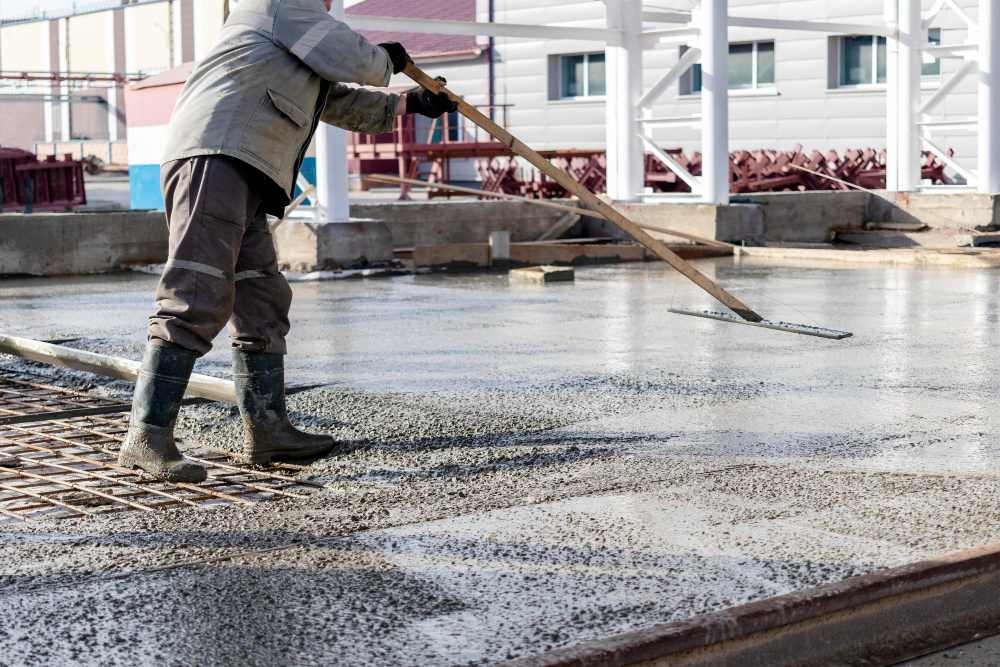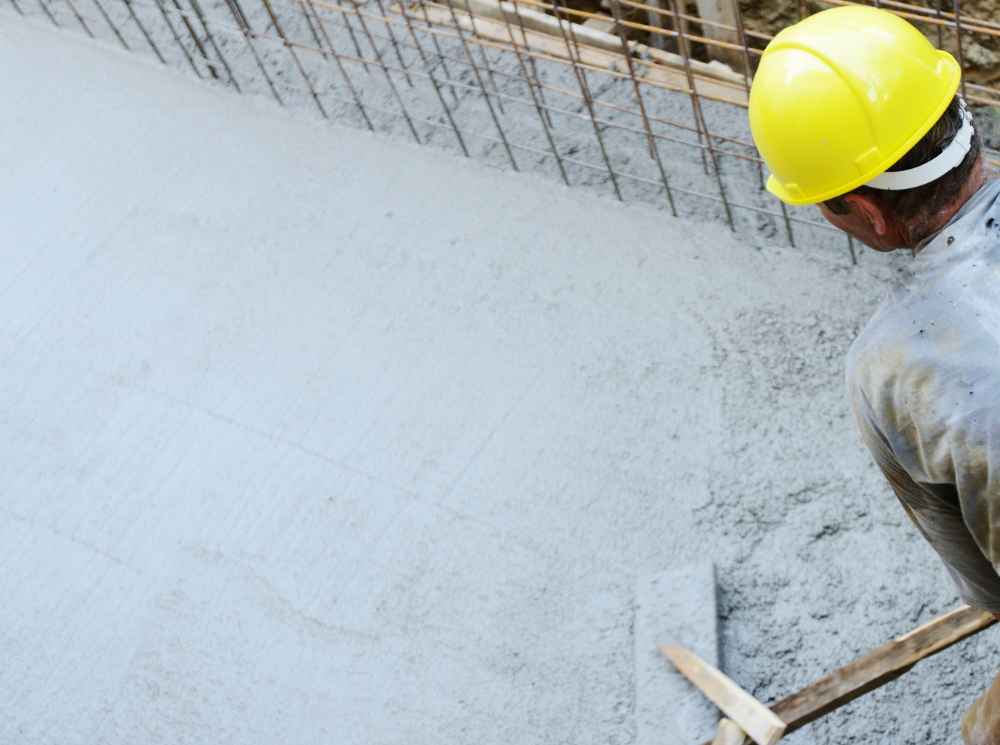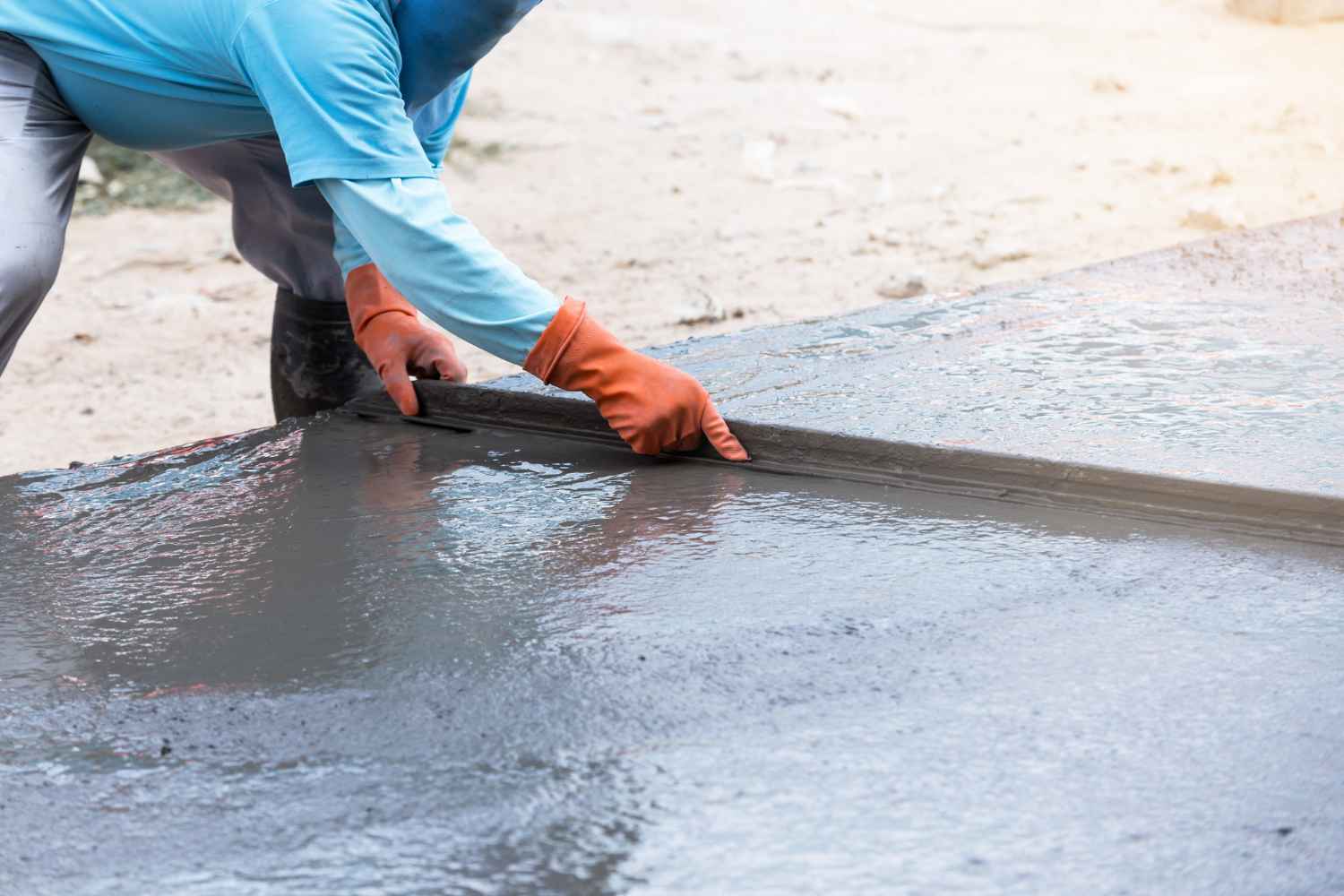The formation of concrete involves mixing water with aggregates and cement. A web of capillaries develops in the concrete structure as the mixture hardens. It is because of numerous chemical reactions which take place during the curing process, making concrete naturally porous. It means that concrete is susceptible to absorbing adequate water, which can cause dampness based on the absorption rate.
However, waterproof concrete is damp-proof and watertight, so soil moisture and liquid water cannot penetrate the surfaces. With this guide, you can learn about the uses of waterproof concrete and the consequences of “too damp” concrete. Moreover, this article also includes information regarding the installation and advantages of waterproof concrete.
Waterproof concrete is an impermeable concrete which is used to construct durable, long-lasting, and watertight building structures. This concrete is made waterproof by adding admixtures along with aggregates, such as crushed stone or chippings, gravel, and sand, to improve its impermeability. In this way, it helps to keep moisture away from the building with enhanced longevity.

Waterproof concrete is suitable for use in different places where the finished concrete will be exposed to moisture, such as:
If concrete gets too damp, it can cause structural erosion as water gets into the pores, leading to cracks and building up moisture. This process happens gradually, taking a while to show visible signs, but you can get an idea about structural deterioration if you observe a slightly worn concrete surface.
Therefore, utilising waterproof concrete is one of the ideal options which provides value for money by ensuring the construction of high-quality structures and buildings.

Based on its performance and longevity, there are many benefits of waterproof concrete for small and large-scale construction projects, such as:
Waterproof concrete does not allow moisture to let into the constructed structures, reducing the appearance of cracks on surfaces. Thus, the vulnerability of structures towards moisture build-ups gets reduced with added strength.
Waterproof concrete reduces the risk of erosion and deterioration of constructed structures. It will decrease the requirement of repairs, resulting in less incurred costs which makes waterproof concrete a cost-effective choice.
The risk of dampness in structural surfaces gets eliminated with waterproof concrete. It thus prevents mould and mildew spores’ growth, leading to a healthier and cleaner surrounding environment with an aesthetic appearance of the building.
When waterproof concrete is used for constructing basements or sub-floors in a property, it reduces the risk of water-related problems. Therefore, the property value potentially increases as the buyers get peace of mind regarding the property’s integrity.
The structural surfaces constructed with waterproof concrete do not deteriorate over time due to moisture retention. Thus, the surfaces do not suffer much wear and tear and maintain their fresh appearance for long.
Waterproof concrete ensures integrity by saving the structures from corrosion and possible deterioration. Preventing water entry and adding extra protection also saves internal materials, such as wood or metal, from possible damage.
The building structures constructed with waterproof concrete do not encounter the problems of moisture build-up and the appearance of surface cracks. Thus, the buildings require less maintenance in terms of repairs and restorations to deal with apparent damages.
Waterproof concrete makes the building structures durable and resistant towards general wear and tear. So, such structures last longer by upkeeping their integrity and appearance.

Waterproof concrete is one of the best options to prevent building structures from becoming ugly and weak over time by eliminating the potential problems related to moisture build-up.
A boom pump uses a robotic arm (boom) to deliver concrete with precision at height or distance, making it ideal for large-scale and high-rise projects. A line pump, on the other hand, is better suited for smaller, ground-level jobs and uses flexible hoses to deliver concrete. We offer both types depending on your project requirements.
With a boom pump, concrete can be pumped up to 70 metres vertically and over 200 metres horizontally. Line pumps can reach around 150 metres horizontally, depending on the setup and hose diameter. Our experts will assess your site and recommend the best solution to reach even the most challenging locations.
Yes, it’s important to ensure the site is accessible, level, and free from obstructions. There should be enough space for the pump vehicle to park and operate safely. If you’re unsure about access or clearance, our team can provide advice or arrange a pre-site visit.
The duration of a concrete pumping job depends on the volume and complexity of the pour. In general, a typical residential pour can be completed in under two hours. Our efficient service aims to minimise downtime and keep your construction project on schedule.
Yes, concrete pumps can operate in light rain and mild weather conditions, but heavy rain, high winds, or frozen ground may delay or halt operations for safety reasons. We always monitor the forecast and keep you informed of any possible schedule changes.
Yes, all our pump hires include a trained and experienced operator who will handle the equipment and ensure concrete is placed efficiently and safely. They’ll also help guide you through the process on-site, ensuring a smooth pour every time.
Ready Mix Concrete London (Trading as Pro-Mix Concrete Ltd)
Copyright © 2025 | Ready Mix Concrete London (Trading as Pro-Mix Concrete Ltd) | All Rights Reserved.